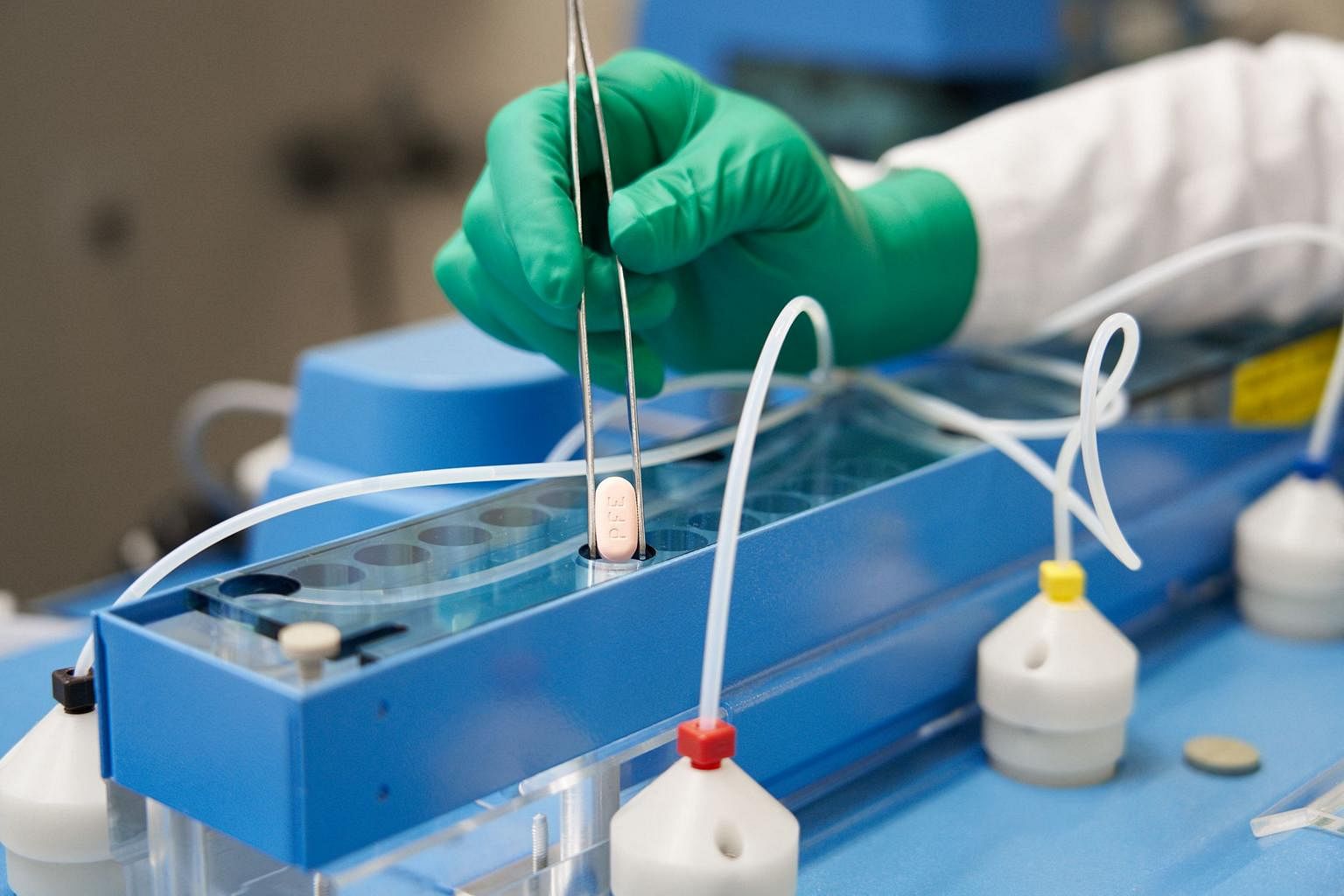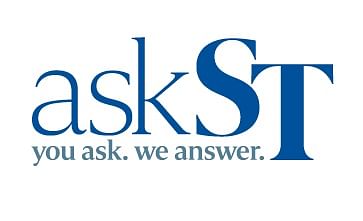askST: What is Paxlovid, the Pfizer pill approved for Covid-19 treatment in S'pore?
Sign up now: Get ST's newsletters delivered to your inbox

Pfizer's antiviral oral pill Paxlovid was granted interim authorisation by the Health Sciences Authority on Feb 3.
PHOTO: AFP
SINGAPORE - Pfizer's antiviral oral pill, Paxlovid, was on Thursday (Feb 3) granted interim authorisation by the Health Sciences Authority (HSA), with the first batches expected to arrive by this month.
The Straits Times looks at the drug's effectiveness and how the drug has been used overseas.
Q: What is Paxlovid and what does it do?
A: The drug is an oral tablet that has been approved for use in treating mild to moderate Covid-19 in adult patients who are deemed to be at high risk of progression to severe disease.
The drug is a combination of two medicines - nirmatrelvir, an antiviral medicine that targets the Sars-CoV-2 virus' 3CL enzyme that the coronavirus needs to replicate; and ritonavir, which helps keep the antiviral active in the body at higher concentrations for a longer time to combat the virus.
Q: How effective is the drug?
A: Clinical trial data had shown that Paxlovid was able to reduce the risk of Covid-19-related hospitalisation or death by 88.9 per cent when given within three days of the onset of symptoms, and 87.8 per cent when given within five days of symptoms onset.
The trial recruited more than 2,000 participants aged 18 to 88 with mild to moderate Covid-19, and who had one or more risk factors for progression to severe Covid-19.
Around half the participants received the drug, while the other half received a placebo. The results showed that 0.8 per cent of participants who received the Paxlovid drug were hospitalised, compared with a 6.3 per cent hospitalisation rate in those who received the placebo. None of the participants who got Paxlovid died, while there were 12 deaths among those who had received the placebo.
Q: Are there any side effects?
A: HSA had found that the drug was generally well tolerated with low incidences of adverse events. The common adverse events reported were mild to moderate, such as altered sense of taste, diarrhoea, vomiting, hypertension, muscle pain (myalgia) and chills.
The drug, however, may interact with various medications, such as medicines for irregular heart rate, migraine, and cholesterol, and could increase the amount of these medications in the blood, leading to serious adverse events.
On the other hand, some medicines such as those for epileptic seizures could reduce the levels of Paxlovid in the body, resulting in a loss in antiviral efficacy.
The potential for drug interactions should be carefully considered by the prescribing doctor prior to treatment initiation.
Q: Which countries have rolled out Paxlovid so far?
A: Paxlovid has been touted as the top choice treatment for a number of patients who are at risk of developing severe Covid-19.
In the United States, at the National Institutes of Health, Paxlovid is recommended as the top choice for at-risk patients. The US government has paid around US$530 (S$710) for a five-day course of Paxlovid.
In Britain, the government's medical guidance advises that patients who are hospitalised for Covid-19 are first offered Paxlovid, followed by antiviral drug remdesivir if it is unsuitable. Paxlovid is also the recommended first-line treatment for eligible Covid-19 patients in the community. It was approved in Britain in December last year.
In Canada, Paxlovid is the first oral and at-home prescription Covid-19 medication to be cleared for use in the country, approved in January.
Some low-income countries are already using generic versions of Paxlovid.
In Bangladesh, generic Paxlovid is being prescribed by large corporate hospitals that have bought it for their patients, as these are much cheaper and can be widely used for the general population.



